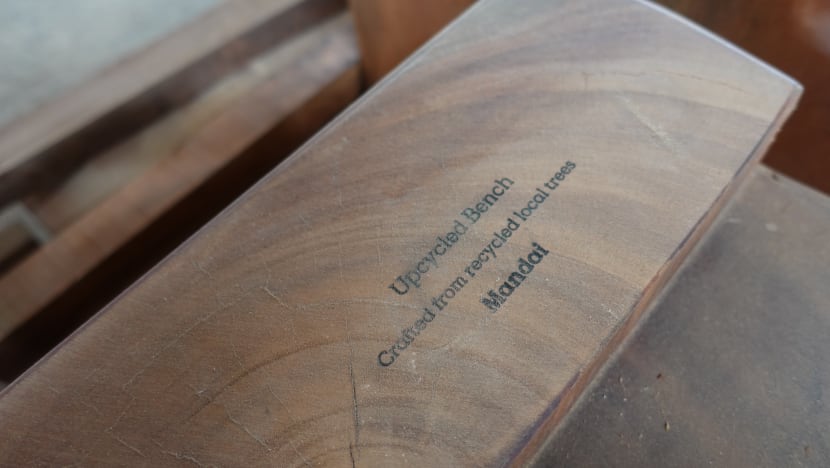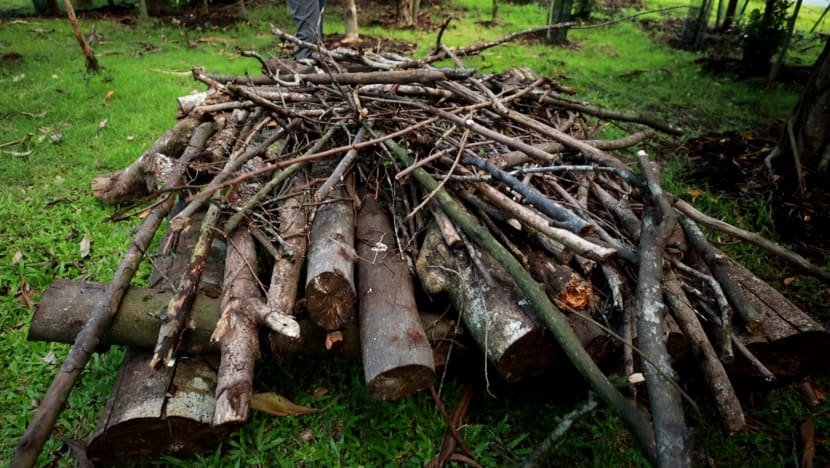Mandai set to become first carbon-neutral precinct in Singapore by 2024
SINGAPORE: Mandai Park Holdings on Wednesday (Sep 29) announced its commitment for Mandai to be carbon neutral by 2024, through a comprehensive sustainability strategy for the area.
That would make Mandai – home to the Singapore Zoo, River Safari and Night Safari – the "first precinct in Singapore to be carbon neutral", the group said.
The company has set itself an "aggressive target" to achieve carbon neutrality, paving the way for it to reach net-zero emissions sooner, said Mandai Park Holdings group CEO Mike Barclay.
"As an organisation that is deeply involved in wildlife conservation efforts, we see first-hand how human-induced climate change is directly contributing to biodiversity loss," said Mr Barclay.
"It is our responsibility to ensure we optimise our operations, in line with our commitment to adopt and showcase sustainable best practices," he added.
The strategy will focus on reducing consumption of energy and water, maximising opportunities to generate renewable energy, and exploring ways to reduce, recycle and upcycle waste, he said.
"We also seek to drive behavioural change by integrating messaging on living sustainably into our education and outreach programmes," he said.
SOLAR POWER
Mandai Park Holdings drives the precinct's rejuvenation through its Mandai Park Development arm and also oversees Wildlife Reserves Singapore, which operates the Singapore Zoo, River Safari, Night Safari and Jurong Bird Park.
The group has pledged to get 100 per cent of its energy from renewable sources by 2030, noting that electricity use accounts for more than half its carbon emissions profile.
As part of this push, it will implement on-site solar panels at "all available and permissible" rooftops across new and existing parks in phases.
It will start with the roof of a newly constructed animal quarantine building this year, by installing a system that consists of 77 solar panel modules that will generate about 50 megawatt hours (MWh) of energy annually.
The next installation will be at an existing multi-storey carpark in October, with 694 solar panel modules able to generate about 450MWh of energy a year.
The group said its carbon strategy focuses on developing a carbon accounting framework, reducing emissions by optimising operations and upgrading infrastructure, and maximising renewable resources while investing in nature-based solutions for carbon reduction.
The carbon accounting framework involves a quarterly review of its carbon inventory and footprint, helping it to locate hotspots in its operations and set reasonable targets, said the company.
The developer has identified improving energy efficiency and diversifying renewable energy sources as priorities.
ENERGY EFFICIENCY
In addition to the renewable energy target, Mandai Park Holdings is aiming for a 1 per cent year-on-year reduction in energy use for its existing parks from 2021, and is developing energy-efficient operations to this end.
Energy efficiency measures are being implemented, such as the installation of an energy monitoring system and motion sensors in its zoological parks.
The company is also upgrading ageing infrastructure, such as pump systems in the River Safari's manatee exhibit and the Singapore Zoo's Primate Kingdom, to more energy-efficient alternatives.
These initiatives are expected to save about 712 MWh of energy a year, equivalent to the energy needed to power about 165 four-room flats annually, said Mandai Park Holdings.
New developments under the Mandai Rejuvenation Project are also getting energy-efficient technology and infrastructure to achieve a site-wide target of cutting more than 20 per cent in energy consumption, the company said.
The rejuvenation project will see the relocation of Jurong Bird Park and the development of a new Rainforest Park in the area. Mandai Wildlife Bridge, the first feature to be completed under the project, opened in end-2019. An eco-resort is also slated to open in Mandai in 2023.
NATURE-BASED SOLUTIONS
To minimise the carbon emissions that would come from clearing trees in a "typical" development project, Mandai Park Holdings said it pursues a strategy of retaining, repurposing and recycling local flora.
Trees, saplings and shrubs are retained or transplanted where possible, it said.
"When trees have to be felled as part of the development work, suitable materials are repurposed for habitat enhancement," said the group.
It cited the decomposing logs and root balls salvaged for use on the Mandai Wildlife Bridge and in the project's buffer zones. Felled tree materials are also recycled for use in animal exhibits, for landscaping and for making furniture and retail items.
An additional 15,000 new trees will also be planted across the project, said Mandai Park Holdings.
To offset last-mile emissions that cannot be reduced completely, the group said it is working with Mandai Nature – its conservation arm and a non-governmental organisation – to explore generating carbon credits from nature conservation projects it supports in the region.
"Benchmarked against rigorous industry standards, the Mandai Environmental Sustainability Strategy will be driven by four strategic thrusts: Resource optimisation, biodiversity protection and conservation, integration with surroundings, and sustainability advocacy," said Mandai Park Holdings.
More details on the sustainability strategy will be released later this year, it added.





No comments
Share your thoughts! Tell us your name and class for a gift (: